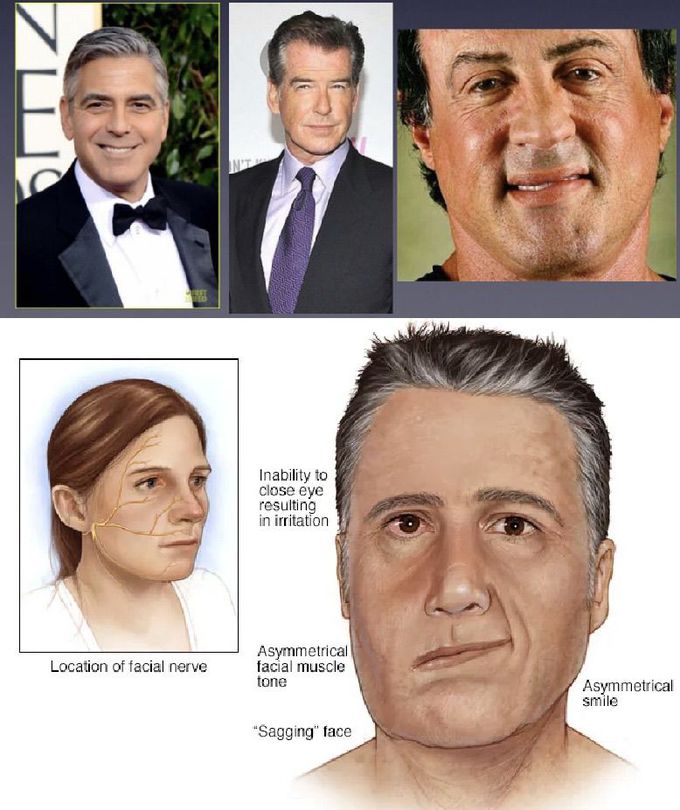


Bell’s palsy
Bell's palsy is a medical condition that causes temporary paralysis of the facial muscles. This condition is named after the physician Sir Charles Bell, who first described it in 1821. It is a fairly common form of paralysis that affects approximately 1 in 5000 people, with a higher prevalence in individuals between the ages of 15 and 60. The exact cause of Bell's palsy is still unknown, but it is believed to be caused by inflammation of the facial nerve that controls the muscles of the face. This inflammation can be caused by a number of factors, including: Viral infections: such as the herpes simplex virus, varicella-zoster virus, and herpes zoster virus Bacterial infections: such as Lyme disease and pertussis Trauma: such as a head or facial injury Stress: stress levels may increase the likelihood of developing Bell's palsy Cold weather Symptoms of Bell's palsy can appear suddenly and include: Sudden muscle weakness or paralysis on one side of the face Difficulty smiling or raising eyebrows Difficulty closing the eye or eating Discomfort in the ear Pain in the jaw or behind the ear Increased sensitivity to light and sound Reduced sense of taste There is no specific cure for Bell's palsy, but treatment can help reduce symptoms and promote a faster recovery with a lower likelihood of residual asymmetries post-healing. Treatment options include: Antiviral medications: these medications may help if Bell's palsy is caused by a viral infection Corticosteroids: these medications can reduce inflammation and decrease Bell's palsy symptoms Physiotherapy: physiotherapy can help maintain muscle strength and improve facial flexibility Eye protection: since Bell's palsy can cause eye dryness and increase the risk of corneal injuries, eye drops or an eye mask may be necessary to protect the eyes Rest Most people recover fully from Bell's palsy within 3-6 months of symptom onset, although some people may develop long-term complications such as syncope (dizziness), Frey's syndrome (excessive sweating or facial sweating during meals), or residual facial asymmetry as in the case of some people in the entertainment industry affected by this condition.

